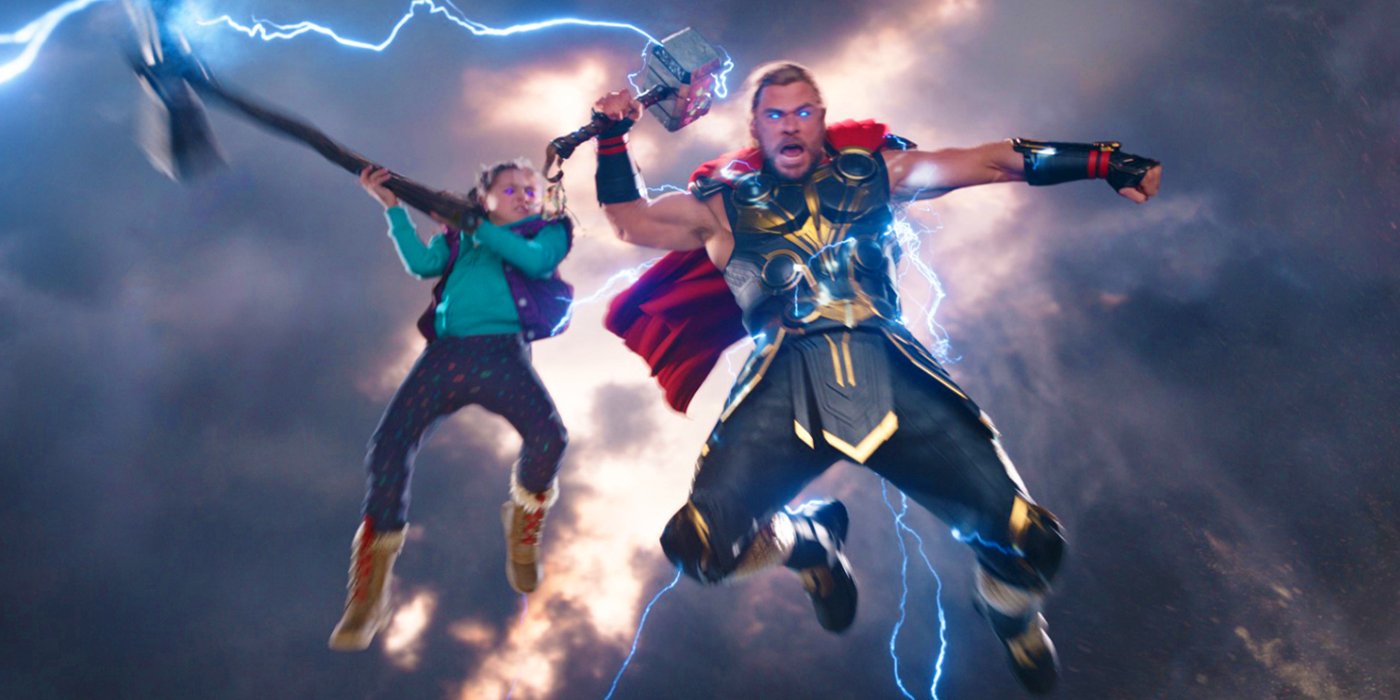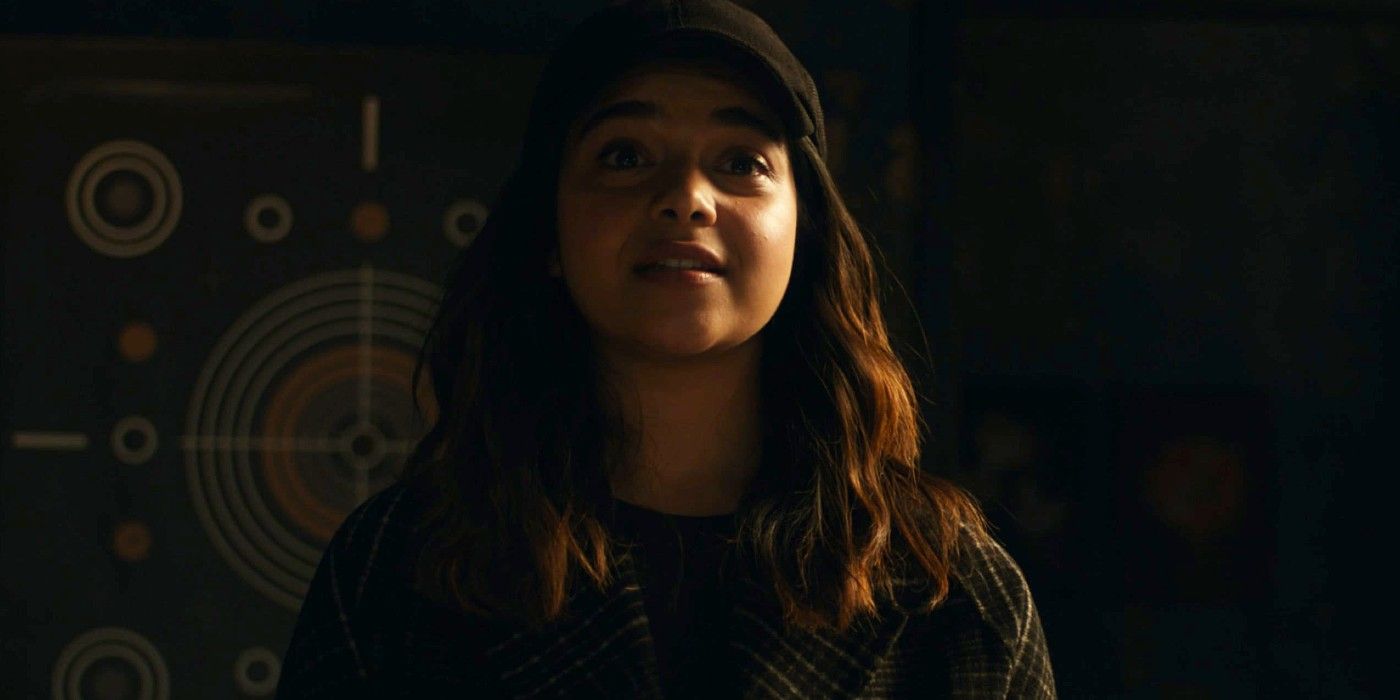Summary
- Thor’s adoption of Love sets up a replacement for him in the MCU, sparking a debate on young heroes in future films.
- Despite potentially being the most powerful new hero in the MCU, Love raises questions about the moral implications of sending a child into battle.
- With a growing roster of young heroes like Love, the MCU is exploring the complexities of integrating young protagonists into its universe.
Love has been set up Thor’s prospective Marvel Cinematic Universe Avengers replacement for when his time in the franchise comes to a close – but this setup reignites an old franchise debate more than ever for future MCU releases. Over the course of his movie history, Thor’s story has seen a lot of complicated moments, and his decision to adopt Love – as well as the events leading up to it – are a prime example of this. However, Thor: Love & Thunder makes sure to show this as a happy ending in the movie for the God of Thunder, now he’s able to teach his adoptive daughter about the world and fight alongside her.
Based on Thor taking Love on as both his own child and as his protégé of sorts, it appears that Gorr’s daughter will follow in his footsteps even after the original MCU Avenger eventually exits the spotlight, making her his most direct replacement down the line. Though this is heartwarming in a lot of senses, Love’s almost inevitable place in future battles in the MCU timeline does once again raise a divisive subject for audiences.
Source
Every Marvel Cinematic Universe Movie Ranked Worst To Best
Over 15 years and 33 movies, the Marvel Cinematic Universe movies have redefined blockbuster cinema. But how do all the films stack up?
Love’s MCU Story Setup Repeats Phase 3’s Spider-Man Hero Debate
Love is perhaps one of the MCU’s most interesting new heroes – and perhaps the most powerful – but Thor: Love & Thunder closing with her about to enter a fierce battle brings up the topic of young heroes and their place in the franchise. Debate about how moral it is to have teen and child heroes has been present in the franchise since Spider-Man first appeared on screens with Captain America: Civil War, which made a point to highlight Peter’s youth compared to both those he was allied with and those he was set to face off against in the conflict.
Indeed, a lot of arguments against Iron Man in Civil War cite his willingness to employ someone without as much hero or life experience in a potentially lethal combat situation. Rhodey taking an injury in this battle that would see him require external leg braces to walk underlines just how serious this battle was even though it was between hero factions, and underline how even the MCU’s “safest” conflicts ask huge things of those involved.
While Love’s powers may make her more likely to win out in these conflicts, the fact she appears to be a child still makes giving her an axe and sending her into battle somewhat complicated at best. This is especially true given Love is by far not the only new young MCU hero, even though she’s a character who’s certainly in a unique position when looking at the franchise as a whole.
Why MCU’s Young Hero Argument Is More Relevant Now Than Ever
The conversation surrounding young MCU heroes was less pressing other than with Spider-Man during much of the early Phases of the franchise, as there were few other similar figures to dwell on. Now, however, there is a far bigger cast of younger heroes, with America Chavez stated to be fourteen during Doctor Strange and the Multiverse of Madness, and Kamala Khan being sixteen in The Marvels. The introduction of the MCU’s Young Avengers also suggests these figures will be more in focus than ever before.
All of this makes Love – as seemingly the youngest of these heroes thus far – the most pertinent example of how the franchise will approach the debate. Though Love’s Eternity-imbued powers mean she’s arguably safer than even a lot of adult heroes at the top of their game, it’s still questionable whether that makes it fully acceptable to let her loose against opponents genuinely trying to end her life. Interestingly, since the MCU has already explored the ideas surrounding growing up as a superhero and its impact, it does seem that this could be directly addressed with Love going forward.
|
MCU’s Confirmed Young Avengers Roster So Far |
|---|
|
Kamala Khan (Ms. Marvel) |
|
Kate Bishop |
The MCU Has Already Teased How It Can End Its Young Hero Argument
Much like the MCU intentionally delved into discussions surrounding how and whether Marvel’s heroes should be intertwined with government bodies in Civil War, it has already delved into the arguments surrounding what capacity younger heroes should be allowed into the fray. MCU’s Spider-Man movie trilogy was all about the unique complications of being a professional superhero before becoming an adult, making a point to show that Peter was just as capable of making hard decisions as his elder peers at several junctions – even if it also emphasized that he could be impulsive and was mentored by Iron Man.
Ms. Marvel also showed the Department of Damage Control as an entity that posed a danger to young people with superpowers, suggesting they would still be at risk from something or someone whether they chose to do good with their abilities or not. Given the MCU is unlikely to avoid young heroes altogether based on its recent trajectory and what a core part of the comics they are, focusing on how many prospective heroes are set to be in conflict whether they like it or not does make most sense in terms of justifying an influx of younger protagonists.


